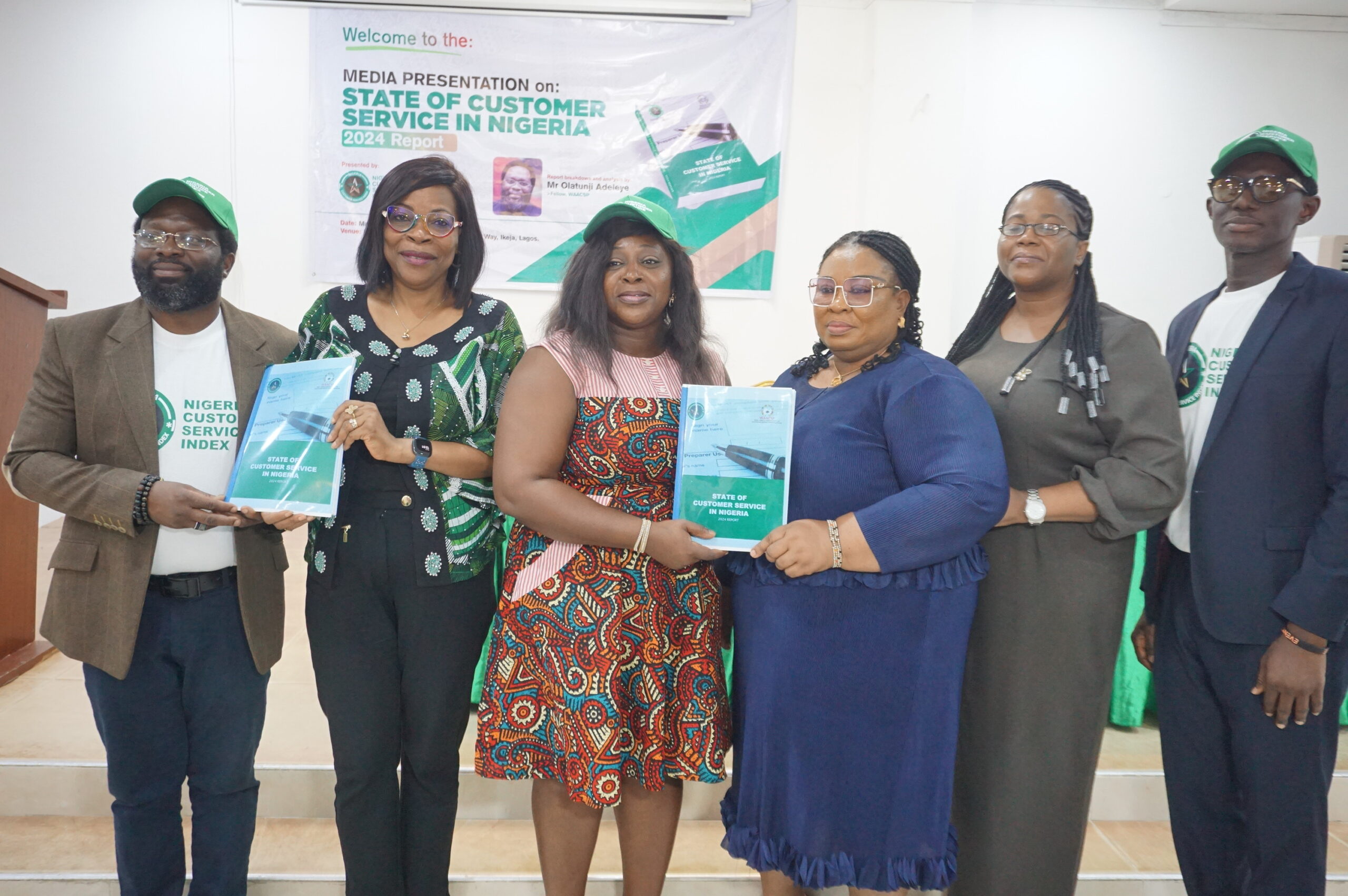By Godwin Anyebe
Nestlé Nigeria has been making headlines not just for its popular consumer products but also for its significant contributions to the agricultural sector. The multinational company’s strategic investments in local agriculture offer valuable lessons for other multinational corporations operating in Nigeria. By focusing on sustainable development, local sourcing, and community engagement, Nestlé Nigeria has demonstrated how businesses can thrive while positively impacting the local economy and environment.
Nestlé Nigeria’s Agricultural Initiatives
Nestlé Nigeria’s commitment to agriculture is evident through its various initiatives aimed at supporting local farmers and enhancing the sustainability of its supply chain. For instance, Nestlé Nigeria has invested heavily in developing local agricultural supply chains. By sourcing raw materials such as cassava, maize, and sorghum from local farmers, the company not only reduces its dependency on imports but also supports Nigerian agriculture. This commitment helps stabilize the local agricultural market and provides a steady income for farmers.
Farmer Training and Support
Understanding that quality and consistency are crucial for a reliable supply chain, Nestlé Nigeria has implemented programs to train and support local farmers. These programs offer education on modern farming techniques, pest management, and sustainable practices. By improving farming practices, Nestlé ensures a higher quality of raw materials while boosting productivity and income for farmers.
It is against this background that Nestlé Nigeria embarked on deliberate sustainable action plan along its production chain for mutual benefits to its stakeholders including indigenous farmers some of whom are found in some local government areas of Kaduna State including Soba, Ikara, Makarfi, Kauru, Kubau, Igabi and Lere.
Speaking on this development at the time, Corporate Communication and Public Affairs Manager, Nestlé Nigeria, Victoria Uwadoka said, “at Nestlé, we recognize that good food respects our planet and protects resources for future generations, we therefore focus our energy and resources where unlocking the power of food can make the greatest difference to the lives of people, protect and enhance the environment, and generate significant value for our shareholders and other stakeholders including the smallholder farmers who supply the grains and legumes we use in our production”.
Also, Nestlé has worked with smallholder farmers, aggregators and other stakeholders in Kaduna State, not only to bring local sourcing to over 80% but to also improve grain quality, significantly reducing rejection rates from over 30% to less than 4%. The impact of this project extends beyond ensuring supplies to Nestlé but also improves the quality of grains for consumption in homes”, Victoria said.
Sustainable Agricultural Practices
Nestlé Nigeria is also dedicated to promoting sustainable agricultural practices. The company’s initiatives include soil health programs, water conservation efforts, and the use of environmentally friendly farming techniques. This focus on sustainability helps reduce the environmental impact of agriculture and ensures long-term viability for the local farming communities.
The company emphasised the need for Nigeria and the world to embrace regenerative agriculture as a new way of farming that could preserve the soil. Regenerative agriculture is a philosophy and approach to land management that aims to farm and ranch in harmony with nature.
The model, according to Nestle, is a holistic and dynamic approach that incorporates permaculture and organic farming practices to increase food production while also improving soil health and the environment.
Last year, at a capacity building media workshop organised by Nestle, in conjunction with the Lagos Business School (LBS), the Head of Corporate Communications and Public Affairs, Nestle Central and West Africa, Ms. Patricia Ekaba, said that aside improving soil quality, the model would also have a positive impact on the profitability of farmers.
She urged stakeholders in the agro industry to form strong partnerships with competitors, government and the rural communities to leverage on the opportunities regenerative agriculture offers.
“We aim to source 20 per cent of key ingredients through regenerative agriculture methods by 2025 and 50 per cent by 2030. We aim to reduce water use in our factories by six million m³ between 2021 and 2023. We aim for 100 per cent of key ingredients volumes to be produced sustainably by 2030,” she said.
Community Engagement and Development
Beyond direct agricultural support, Nestlé Nigeria actively engages with the communities where it operates. The company invests in local infrastructure, health, and education, enhancing the overall quality of life in these areas. This holistic approach not only benefits the immediate community but also fosters goodwill and strengthens the company’s relationship with local stakeholders.
Lessons for Other Multinationals
Multinationals can reduce costs and enhance supply chain stability by investing in local sourcing. This strategy not only supports local economies but also builds resilience against global supply chain disruptions. Companies should explore opportunities to partner with local farmers and suppliers to create a mutually beneficial relationship.
Providing training and support to local suppliers is crucial for ensuring quality and consistency. Multinationals should invest in capacity-building programs to help local businesses and farmers improve their practices, leading to better products and more reliable supply chains.
Integrating sustainable practices into business operations is essential for long-term success. Multinationals should adopt environmentally friendly practices and support sustainable agriculture initiatives. This commitment not only benefits the environment but also resonates with increasingly eco-conscious consumers.
Building strong relationships with local communities through engagement and investment is key to successful operations. Multinationals should focus on community development initiatives that address local needs and contribute to overall social and economic growth.
Understanding and adapting to local contexts is vital for multinational success. Companies should tailor their strategies to fit the unique challenges and opportunities of the regions in which they operate. This approach ensures that business practices are aligned with local realities and fosters better relationships with local stakeholders.
Experts Views
While offering his insights on this development, Kayode Salako, a renowned agricultural expert and consultant said, Nestlé’s approach serves as an exemplary model for multinational corporations operating in Nigeria, noting that, the impact of Nestlé’s initiatives on local agriculture offers guidance on how other companies can replicate its success in Nigeria.
According to him, one of the standout features of Nestlé Nigeria’s approach is its emphasis on local sourcing. “Nestlé’s commitment to integrating local farmers into their supply chain is a game-changer,” Salako notes. “By sourcing raw materials such as cassava, maize, and sorghum locally, Nestlé not only stabilizes its supply chain but also contributes significantly to the local agricultural economy.”
Salako pointed out that this strategy helps mitigate the risks associated with global supply chain disruptions and supports local farmers by providing them with a steady market for their produce. “This approach also helps in reducing the carbon footprint associated with long-distance transportation of raw materials,” he adds.
Further, Salako commends Nestlé Nigeria for its investment in farmer training and support programs. “Effective capacity building is crucial for improving agricultural productivity and quality,” he explains. “Nestlé’s initiatives to educate farmers on modern techniques, pest management, and sustainable practices are exemplary.”
These programs not only enhance the quality of raw materials but also empower farmers with the skills needed to increase their productivity and income. “This investment in human capital is a win-win situation,” Salako states. “It leads to higher quality products for Nestlé and a better standard of living for the farmers.”
Sustainability is another area where Nestlé Nigeria has set a high standard. Salako highlights the company’s commitment to environmentally friendly practices. “Nestlé’s focus on soil health, water conservation, and sustainable farming techniques demonstrates a responsible approach to environmental stewardship,” he notes
He emphasizes that integrating sustainability into agricultural practices is not only beneficial for the environment but also essential for the long-term success of agricultural enterprises. “Sustainable practices help preserve natural resources and ensure that farming can continue to support communities for generations to come,” he adds
Salako also praises Nestlé Nigeria’s engagement with local communities. “Nestlé’s holistic approach, which includes investing in local infrastructure, health, and education, reflects a deep commitment to the well-being of the communities where it operates,” he observes.
This community-focused strategy helps build trust and strengthens the company’s relationship with local stakeholders. “When companies invest in the broader community, they create a positive environment that fosters goodwill and support,” Salako says.
Also speaking on this development, Emmanuel Ogbonnaya, Chairman of the Nigeria Association of Agricultural Journalists (NAAJ), commends Nestlé Nigeria for its strategic focus on local sourcing. “Nestlé’s approach to sourcing raw materials like cassava, maize, and sorghum from Nigerian farmers is both commendable and impactful,” Ogbonnaya remarks. “By integrating local farmers into their supply chain, Nestlé not only supports the local agricultural sector but also helps to stabilize the rural economy.”
Ogbonnaya highlights that this practice reduces reliance on imports and strengthens the resilience of the local agricultural market. “This strategy creates a more sustainable and robust supply chain, which benefits both the company and the local communities,” he notes. “It’s a model that other multinationals should consider as it promotes economic self-sufficiency and growth.”
Ogbonnaya underscores the significance of Nestlé Nigeria’s investment in farmer training and support programs. “One of the most impressive aspects of Nestlé’s approach is their dedication to enhancing the skills and knowledge of local farmers,” he says. “Through training on modern agricultural techniques, pest control, and sustainable practices, Nestlé is not just securing a better supply of raw materials but also empowering farmers.”
This capacity-building initiative leads to improved productivity and higher quality of produce. “For many farmers, these programs represent a critical opportunity for growth and advancement,” Ogbonnaya adds. “It’s a positive reinforcement of the company’s commitment to creating a more sustainable agricultural sector.”
In terms of sustainability, Ogbonnaya lauds Nestlé Nigeria’s efforts in promoting environmentally friendly practices. “Nestlé’s commitment to sustainable agriculture, including soil health and water conservation, is a vital step towards mitigating the environmental impact of farming,” he notes. “This focus on sustainability ensures that agricultural practices are not only productive but also environmentally responsible.”
Ogbonnaya emphasizes that such practices are crucial for the long-term viability of agriculture. “Sustainable agriculture is key to preserving our natural resources and ensuring that future generations can continue to benefit from farming,” he explains. “Nestlé’s approach is an example of how corporate responsibility can align with environmental stewardship.”
Ogbonnaya also highlights Nestlé Nigeria’s broader community engagement efforts. “Nestlé’s investment in local infrastructure, healthcare, and education showcases a comprehensive approach to corporate social responsibility,” he observes. “This kind of engagement strengthens the relationship between the company and the communities it operates in, fostering goodwill and mutual support.”
By contributing to community development, Nestlé helps to improve the overall quality of life in the areas where it works. “Such initiatives go beyond traditional business operations and demonstrate a commitment to social progress,” Ogbonnaya says.
Conclusion
Nestlé Nigeria’s agricultural exploits serve as a compelling model for other multinational corporations in Nigeria and beyond. By prioritizing local sourcing, supporting farmers, promoting sustainability, and engaging with communities, Nestlé demonstrates how businesses can achieve success while making a positive impact on their operating environments. As other multinationals look to expand or enhance their operations in Nigeria, the lessons from Nestlé Nigeria’s approach offer valuable insights into building sustainable and mutually beneficial relationships with local communities.









